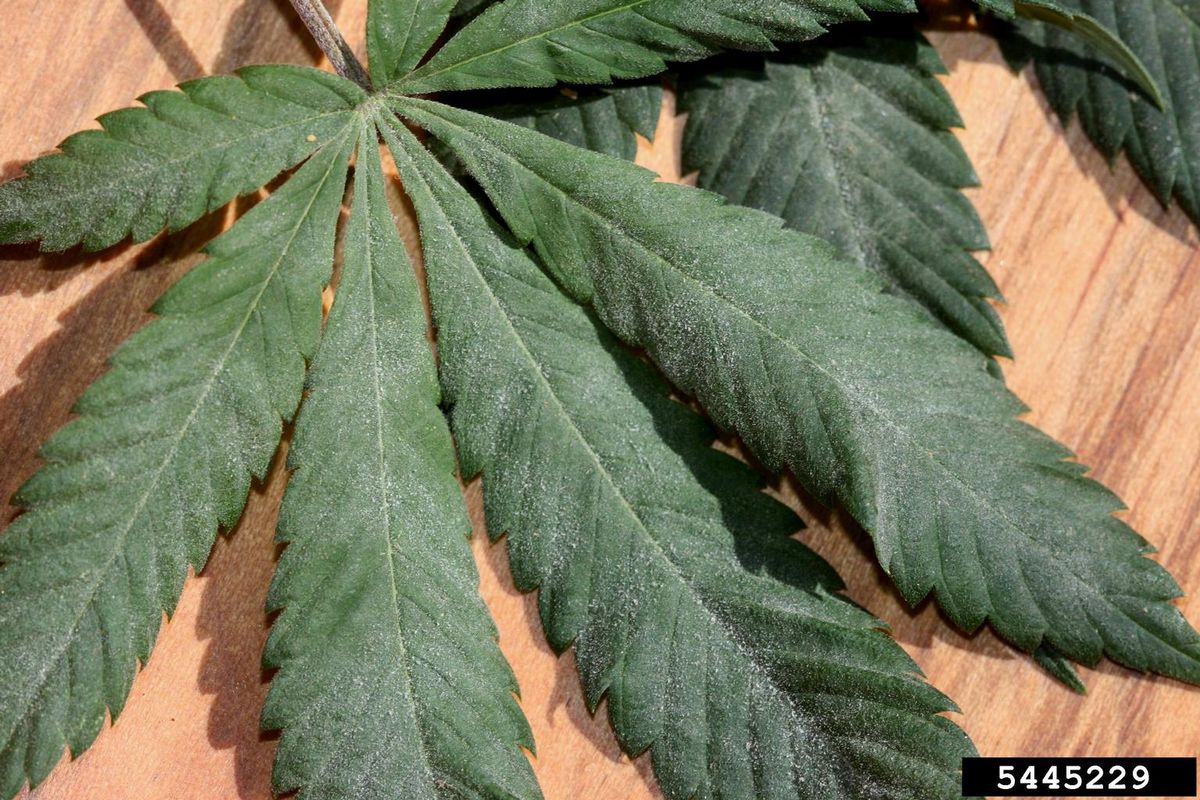Missouri’s Medical Marijuana Program offers therapeutic relief to patients with various health conditions. Understanding the qualifying conditions, application process, legal nuances, and access to cannabis is crucial for those seeking to utilize the program. This article aims to simplify the journey for Missouri residents by explaining the qualifying conditions, guiding through the application process, and highlighting patient rights and how to access medical marijuana within the state.
Key Takeaways
- Missouri’s Medical Marijuana Program covers a range of qualifying conditions, including chronic diseases like cancer, epilepsy, and multiple sclerosis.
- The application process requires personal information, medical documentation of the qualifying condition, and consultation with a licensed physician.
- Patients have specific rights and protections under the program, including privacy considerations and caregiver provisions.
- Understanding reciprocity is important for Missouri medical marijuana cardholders when traveling, as laws and qualifying conditions can vary by state.
- Access to medical marijuana in Missouri involves finding licensed dispensaries and adhering to purchasing limits and product regulations set by the state.
Understanding the Qualifying Conditions

Common Ailments Covered
Missouri’s approach to medical marijuana qualification is broad and inclusive, allowing for a range of conditions to be eligible for treatment. Patients can qualify for medical marijuana not only for well-known conditions like cancer or epilepsy but also for less commonly listed ailments such as restless leg syndrome. This inclusive approach ensures that individuals with various health challenges have access to potential relief through medical cannabis.
The list of qualifying conditions includes, but is not limited to:
- Amyotrophic lateral sclerosis (ALS)
- Autism
- Cachexia
- Cancer and chemotherapy-related symptoms
- Chronic pain
- Crohn’s disease
- Epilepsy
- Glaucoma
- HIV/AIDS
- Multiple Sclerosis
- Muscle spasms
- Nausea
- PTSD (Post-Traumatic Stress Disorder)
It’s important to note that there is no minimum age for obtaining a medical marijuana card in Missouri. This means that both adults and minors with qualifying conditions can seek treatment, with adult patients being at least 18 years old.
Patients with chronic or debilitating diseases may also qualify if they experience severe symptoms such as cachexia, chronic pain, severe nausea, seizures, or persistent muscle spasms. The flexibility of the program’s criteria allows for a personalized approach to medical marijuana treatment, tailored to the specific needs of the patient.
Chronic and Debilitating Diseases
Missouri’s medical marijuana program recognizes a range of chronic and debilitating diseases that qualify patients for treatment. These conditions often require ongoing, specialized medical care and may significantly impair quality of life.
The following is a list of some chronic and debilitating conditions that Missouri acknowledges for medical marijuana use:
- Amyotrophic lateral sclerosis (ALS)
- Autism
- Cachexia
- Cancer and chemotherapy-related symptoms
- Chronic pain
- Crohn’s disease
- Epilepsy
- Glaucoma
- HIV/AIDS
- Multiple Sclerosis
- Muscle spasms
- Nausea
- PTSD (Post-Traumatic Stress Disorder)
The vast therapeutic potential of cannabis necessitates expert medical oversight. Healthcare providers specializing in cannabis medicine offer personalized care, ensuring that patients receive the most appropriate treatment for their specific conditions.
Navigating State-Specific Requirements
When considering the use of medical marijuana in Missouri, it’s crucial to understand that state-specific requirements can significantly impact access and usage. For instance, the types of cannabis products permitted, the potency of these products, and even the list of qualifying conditions may vary when crossing state lines. This can pose challenges for patients who travel, as they must navigate a complex landscape of varying regulations.
Patients must be acutely aware of the limitations imposed when they travel across state lines, which can affect their overall quality of life.
In Missouri, staying informed about the state’s specific tax policies is also essential. These policies can influence the cost of treatment and the benefits of holding a medical cannabis card. For example, some states have regulations that favor medical cannabis cardholders, potentially reducing their treatment costs. Awareness and knowledge are key to making informed healthcare decisions.
To effectively navigate Missouri’s medical marijuana program, consider the following steps:
- Familiarize yourself with Missouri’s list of qualifying conditions.
- Understand the legal implications of possessing and using medical marijuana within the state.
- Stay updated on any changes to Missouri’s medical marijuana laws and regulations.
The Application Process for Missouri’s Medical Marijuana Program

Documentation and Eligibility
To participate in Missouri’s Medical Marijuana Program, applicants must provide proof of Missouri residency and a valid identification. A critical step in the application process is obtaining a physician certification form, which confirms the presence of one or more qualifying medical conditions.
Eligibility for the program is strictly tied to the list of conditions approved by the state. The Missouri Department of Health and Senior Services provides a comprehensive list of these conditions, which includes, but is not limited to, cancer, epilepsy, glaucoma, intractable migraines, and chronic medical conditions that cause severe, persistent pain or persistent muscle spasms.
It is essential for applicants to ensure that all documentation is accurate and up-to-date to avoid delays in the application review process.
Consulting with a Licensed Physician
Once eligibility is confirmed, the next pivotal step is consulting with a licensed physician. In Missouri, this is a mandatory part of the medical marijuana card application process. Physicians play a crucial role in assessing your condition and determining if medical marijuana is an appropriate treatment option for you. Their expertise is vital in both mitigating potential risks and maximizing therapeutic benefits.
During your consultation, it’s important to be prepared. Here’s a quick checklist of what to bring:
- A valid state ID or driver’s license
- Medical records pertaining to your qualifying condition
- A list of current medications
Remember, this consultation is a proactive step towards your wellness. Engage openly with your physician about your symptoms and treatment history to ensure the best possible care plan.
If you’re unable to visit a physician in person, telehealth appointments are an option in many states. This convenient alternative allows you to complete the medical marijuana card application process from the comfort of your home.
Receiving Your Medical Marijuana Card
Once your application has been approved, the final step in the process is receiving your medical marijuana card. This card is your passport to accessing medical cannabis legally within Missouri. It’s essential to keep this card updated and with you whenever you visit dispensaries.
- Ensure your personal information is accurate.
- Keep track of the card’s expiration date to renew on time.
- Store the card in a safe place to avoid loss or damage.
The medical marijuana card is more than just a form of identification; it represents a patient’s right to access alternative and potentially life-changing medication.
Remember, the card is only valid within the state of Missouri. If you plan to travel, check the reciprocity agreements with other states to understand where your card will be honored.
Legal Considerations and Patient Rights

Privacy and Legal Protections
In Missouri, patient privacy is a cornerstone of the medical marijuana program. All personal health information is protected under state law, ensuring that patient identities and medical conditions are kept confidential. This aligns with the Health Insurance Portability and Accountability Act (HIPAA), which safeguards medical information at the federal level.
Patients have the right to expect that their participation in the program will not be disclosed without their consent, except in circumstances required by law.
The following list outlines key legal protections for medical marijuana patients in Missouri:
- Protection from discrimination in housing, education, and employment
- Security from law enforcement targeting for legal possession and use
- Clarity in the legal framework to prevent state-federal conflicts
Understanding these protections helps patients navigate the program with confidence, knowing their rights are upheld.
Rights of Patients and Caregivers
In Missouri, the rights of patients and caregivers are clearly defined to ensure ethical and secure access to medical marijuana. Caregivers have the authority to purchase, possess, administer, and cultivate medical marijuana for their patients, adhering to specific regulations. Caregivers may possess a separate legal limit for each patient under their care, and if they are also a qualifying patient, a separate limit for themselves. These limits must be stored and labeled distinctly for each patient.
Caregivers play a crucial role in the medical marijuana program, providing necessary support to patients who may not be able to access or administer their medication independently.
It’s important to note that caregivers cannot engage in the sale of cannabis to dispensaries without the appropriate cultivation license. The responsibilities of caregivers extend to maintaining the integrity of the program by ensuring that all transactions and cultivation practices are within the legal framework set by Missouri law.
Understanding Reciprocity and Travel Restrictions
When Missouri’s medical marijuana patients travel, they must navigate the complex landscape of medical marijuana card reciprocity. Not all states recognize out-of-state medical cards, and those that do may impose various conditions and limitations. For instance, while Missouri protects out-of-state patients with a valid medical marijuana card from criminal liability for possession of up to one ounce of cannabis, this is not a universal standard.
The concept of reciprocity is crucial for patients who rely on medical cannabis for treatment and find themselves in different states. Understanding the specific regulations of each state is essential to avoid legal complications.
The following points highlight the key aspects of Missouri’s approach to reciprocity and travel with medical marijuana:
- Missouri offers legal protection for out-of-state patients carrying up to one ounce.
- Patients should verify the reciprocity laws of the state they plan to visit.
- It’s important to be aware of the types of products and potency levels that are legally permissible in other states.
- Always carry your medical marijuana card and a state-issued ID when traveling.
Accessing Medical Marijuana in Missouri

Finding Licensed Dispensaries
Once you have obtained your medical marijuana card, the next step is to find a licensed dispensary where you can purchase your medication. In Missouri, dispensaries are regulated to ensure patient safety and product quality. It’s important to choose a dispensary that not only complies with state regulations but also meets your specific needs in terms of product selection and customer service.
When selecting a dispensary, consider the variety of products offered, the knowledge of the staff, and the overall atmosphere of the establishment.
Here are some tips for finding the right dispensary for you:
- Research online for dispensaries near you and read reviews from other patients.
- Visit multiple dispensaries to compare product quality and pricing.
- Inquire about lab testing results for cannabis products to ensure safety and potency.
- Ask about the dispensary’s policies on patient education and support.
Remember, the goal is to find a dispensary that provides a comfortable and supportive environment for your medical cannabis needs.
Product Availability and Selection
In Missouri, patients with a medical marijuana card have access to a variety of MMJ products. At the dispensary, you will find products like flowers, edibles, and vapes, each with different concentrations of THC and CBD to cater to individual needs and preferences. The selection available can vary greatly from one dispensary to another, with some focusing on a wide range of strains and others specializing in specific types of products.
Patients should consider not only the potency and type of product but also the method of consumption that best suits their condition and lifestyle. For instance, inhalation methods provide quicker relief, while edibles offer longer-lasting effects. It’s important to consult with dispensary staff or a healthcare professional to make informed choices.
While exploring the selection, patients should be mindful of the quality and sourcing of the products. Ensuring that the MMJ products are lab-tested and meet the state’s regulatory standards is crucial for safety and efficacy.
Purchasing Limits and Regulations
In Missouri, the medical marijuana program sets forth specific purchase limits to ensure responsible use and distribution. Patients are generally restricted to a six (6) ounce limit per purchase. However, exceptions are made for those with compelling medical needs as certified by a physician or nurse practitioner. In such cases, the certified amount becomes the patient’s new limit.
Patients who receive authorization for an increased purchase limit must notify the department within thirty (30) days of the certification. The department then has the same amount of time to approve or deny the request. It’s important to note that patients cannot combine their purchasing power as both a patient and a consumer to exceed these limits.
The regulations are designed to balance patient needs with the state’s commitment to prevent diversion and misuse. Ensuring that patients and caregivers adhere to these limits is crucial for maintaining the integrity of Missouri’s medical marijuana program.
Caregivers play a vital role in providing access to medical marijuana. They are tasked with purchasing, possessing, administering, and potentially cultivating medical marijuana ethically and securely for their patients. For regular consumers, the limit is set to three (3) ounces of dried, unprocessed marijuana or its equivalent in a single transaction.
Conclusion
As we’ve explored the intricacies of Missouri’s Medical Marijuana Program, it’s clear that understanding the qualifying conditions is crucial for patients seeking relief through medical cannabis. From chronic diseases like ALS and cancer to conditions such as glaucoma and PTSD, Missouri’s program provides a path for those in need to access this form of treatment. However, it’s important to remember that laws and qualifying conditions can vary significantly from state to state. Patients must navigate these regulations carefully and stay informed about their state’s specific requirements. By doing so, eligible individuals can obtain the necessary documentation and gain legal access to dispensaries, ensuring they receive the support they need to improve their quality of life. Always consult with a licensed medical professional and consider the legal implications, especially when traveling, to maintain compliance with state medical cannabis laws.
Frequently Asked Questions
What are the qualifying conditions for Missouri’s Medical Marijuana Program?
Qualifying conditions include chronic diseases such as cancer, epilepsy, multiple sclerosis, and PTSD, as well as conditions causing severe pain, nausea, or muscle spasms. The list is continually updated, so consult with a licensed physician for the latest information.
How do I apply for a medical marijuana card in Missouri?
The application process requires personal information, medical records documenting the qualifying condition, and valid identification. After approval, you’ll receive your medical marijuana card, allowing legal access to dispensaries.
Can I use my Missouri medical marijuana card in other states?
Medical marijuana card reciprocity is not universal. Before traveling, check the laws of the destination state to understand their reciprocity rules and whether your Missouri card will be honored.
Are there any public restrictions for using medical marijuana in Missouri?
Yes, smoking medical marijuana in public places is prohibited unless specified by law. Always consume responsibly and within the legal guidelines.
What should I do if my medical condition is not listed as a qualifying condition?
If your condition is not listed, consult with a licensed physician who may determine if your symptoms fit a qualifying condition or if an exception can be made. The list of conditions is updated periodically.
How can I find a licensed dispensary in Missouri?
You can locate licensed dispensaries in Missouri by using the state’s official medical marijuana program website or other resources that list legal and regulated dispensaries within the state.




